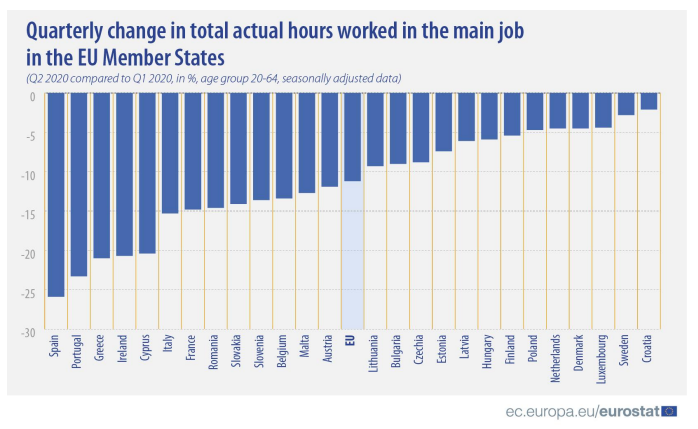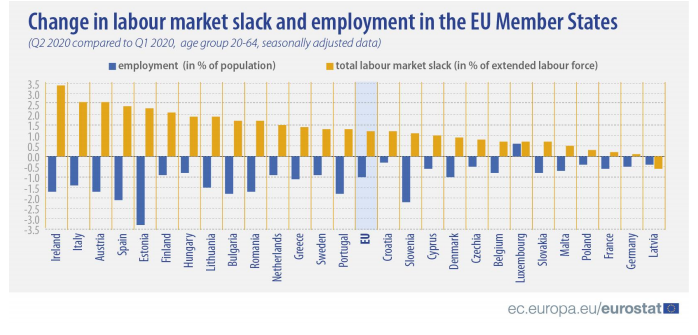
Covid-19 Impacts on Labor Market: Low Income Workers at Greater Risk of Unemployment
A recent study released by Eurostat provided new data on the impact of the Covid-19 pandemic on income distribution, with low income workers more likely to lose their job or to be temporarily laid-off, deepening inequalities across Europe. Title imgae: Freepik.
Article written by Ines Ribas, edited for Jobspin
Czech Rep. Oct 30 (JS) – The risk of facing loss of income and deeper poverty differs widely across age groups, economic sectors and countries. Temporary lay-offs affected millions of workers, while job losses have been mitigated by short-term support schemes.
Accommodation and food sector workers are those likely to face temporary lay-offs. The new Eurostat data shows that temporary workers, young workers (aged 16 to 24) and those in low-skilled occupations are at greater risk of unemployment.
Generally speaking, those with lower incomes, including those below the risk of poverty threshold, are more likely to be at risk of job security or income loss as a result of the pandemic. Young, low-skilled, accommodation and food sector workers often make up a significant proportion of low-income earners in many countries, placing them at greater risk and deepening existing inequalities.
The impact on the labour market has also been felt in different countries unevenly: Spain, Italy, Cyprus, Ireland and Greece have been particularly badly affected.

Furthermore, labour effects due to Covid-19 also tend to be highly unequal within countries. More vulnerable workers suffer the harshest blows: the probability of job loss is two to three times larger for low-income earners in Spain, Ireland, Italy or Portugal.
The Czech Republic, Slovakia and Romania register a smaller gap between high- and low-earners when it comes to the possibility of facing unemployment.


